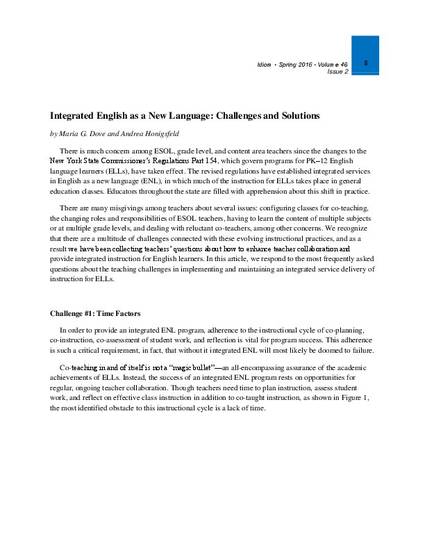
There is much concern among ESOL, grade level, and content area teachers since the changes to the New York State Commissioner’s Regulations Part 154, which govern programs for PK–12 English language learners (ELLs), have taken effect. The revised regulations have established integrated services in English as a new language (ENL), in which much of the instruction for ELLs takes place in general education classes. Educators throughout the state are filled with apprehension about this shift in practice. There are many misgivings among teachers about several issues: configuring classes for co-teaching, the changing roles and responsibilities of ESOL teachers, having to learn the content of multiple subjects or at multiple grade levels, and dealing with reluctant co-teachers, among other concerns. We recognize that there are a multitude of challenges connected with these evolving instructional practices, and as a result we have been collecting teachers’ questions about how to enhance teacher collaboration and provide integrated instruction for English learners. In this article, we respond to the most frequently asked questions about the teaching challenges in implementing and maintaining an integrated service delivery of instruction for ELLs.
Available at: http://works.bepress.com/andrea-honigsfeld/70/
